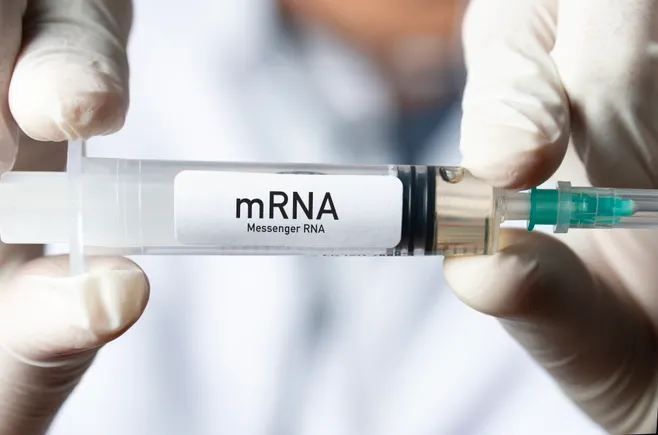Five years after the start of the COVID-19 pandemic, the landscape of vaccine research in the United States is facing a significant threat. Federal and state health agencies are considering abandoning critical research areas that played a key role in overcoming the global crisis: vaccines and the mRNA technologies that powered them.
Kate Broderick, the chief innovation officer at TriLink Biotechnologies and Maravai Lifesciences, expressed concerns about the backlash against mRNA vaccines. Despite their unprecedented success, political policies and public perception have cast a shadow over the future of this groundbreaking technology. This shift has led to a decline in funding and a potential halt in scientific progress.
At the recent World Vaccine Congress in Washington, D.C., Broderick and other attendees noticed a lack of government representation. The absence of officials from agencies like the FDA and CDC raised concerns about the future of infectious disease prevention. With epidemics remaining inevitable and pandemics preventable, the need for continued research and innovation is more critical than ever.
In an effort to advocate for the future of mRNA technology, Broderick and other life sciences leaders have engaged with congressional staffers to highlight the vast potential of this technology beyond vaccines. By emphasizing its applications in areas like cancer and rare diseases, they aim to broaden policymakers’ understanding of the benefits of mRNA research.
Despite challenges such as misinformation and skepticism surrounding vaccines, Broderick stresses the importance of letting data speak for itself. While calls for additional safety testing persist, Broderick questions the feasibility and necessity of such measures, given the extensive use of COVID vaccines worldwide.
The recent cuts to NIH funding and efforts to remove mRNA research from grants have raised concerns within the scientific community. Broderick warns that halting research in this field could have far-reaching consequences, impacting advancements in oncology and other critical areas of medicine. Additionally, it could jeopardize the country’s position as a leader in scientific innovation and industry.
While short-term political decisions may influence scientific priorities, Broderick remains optimistic about the long-term trajectory of progress. Drawing parallels to past controversies like stem cell research, she believes that public exposure to the potential benefits of technology can shift perceptions and garner support.
In light of a measles outbreak and declining vaccination rates, Broderick acknowledges the scientific community’s responsibility to better communicate the importance of vaccines to the public. Reflecting on the erosion of public trust and the rise of anti-vaccine sentiment, she emphasizes the need for education and transparency to rebuild confidence in scientific advancements.
As the scientific community navigates challenges and works to regain public trust, Broderick remains steadfast in her belief that truth and data will ultimately prevail. By upholding principles of safety and transparency, she is hopeful that science will continue to drive progress and innovation in the fight against infectious diseases.


